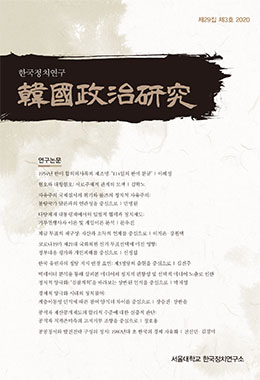본 논문은 지난 1년간 한국 사회에서 검찰을 둘러싼 정치적 논란과 여론의 적대적 양극화 현상에 주목하여 우선 검찰을 다루는 언론의 편향성을 실증적으로 규명하고, 이러한 언론의 편향성이 21대 총선에서 유권자의 투표행태에 어떠한 영향을 미쳤는지 경험적으로 증명한다. 미디어 편향성을 규명하기 위해 본 연구는 텍스트 스케일링 방법인 워드피시(Wordfish) 모형을 사용하여 10개 주요 일간지의 ‘검찰’ 관련 사설을 분석하여 개별 언론사의 이념적 위치를 추정한다. 미디어 편향성에 대한 분석결과를 바탕으로 본 연구는 정파적 성향의 미디어에 대한 선택적 노출이 검찰개혁과 관련한 개별 이슈들에 대한 유권자의 인식에 어떠한 영향을 끼쳤는지 살펴보았다. 본 연구의 경험적 분석에 따르면 정파적 미디어 이용은 검찰개혁과 관련된 사안에 대해 대중들의 정파적 인식을 강화시키고 결과적으로 해당 사안에 대해 정치적으로 양극화된 태도로 이어졌음이 드러났다. 결과적으로 본 연구는 특정 매체가 지니는 보도 성향에 따라 해당 매체를 접하는 사회의 여론 또한 다르게 형성될 수 있음을 보여주며 나아가 미디어의 편향성에 의해 정치적 갈등이 극단적으로 표출될 수 있음을 보여준다.
In this paper, I argue that the media in general are politically biased and that selective exposure to partisan media may lead to an individual’s opinion extremity. To capture “media bias,” the text scaling model (Wordfish model) was used to estimate ideal points of ten major newspapers in South Korea. My empirical finding suggests that Korean newspapers are ideologically divisive and that editorial texts of ten national newspapers have commented differently on the prosecution reform depending on their ideological stance. Next, I examine how a citizen’s selective exposure to partisan media affects her perception of the government’s prosecution reform drive. I find that selective exposure to partisan media outlets intensifies an individual’s political orientation and leads to political tensions over prosecution reform.


